Christian Karamagi’s Huduma Fellowship Class of 2023 valedictorian speech delivered on 04 November 2023 in Kampala, Uganda.
Good afternoon,
The LéO Africa Institute,
Konrad Adenauer Stiftung, Well-wishers, friends, and family,
We made it!
I am humbled to address such a wonderful gathering here today while we celebrate the success of The Huduma Class of 2023. As valedictorian, I am especially honoured to represent the distinguished class of sixteen. Being valedictorian is not a testament to my individual brilliance, rather, it’s a deep reflection of the sixteen individuals who make us the Huduma class of 2023.
An interesting fact about this cohort is that, while previous Huduma cohorts consisted of fifteen individuals, ours had sixteen.
There’s been an ongoing debate about who the sixteenth fellow is – with our resident DJ claiming the title– we’ve come to realize that each one of us embodies the spirit of the 16th fellow, characterized by passion, brilliance, and dedication.
As Friedrich Hegel once said, ‘Nothing great in the world has ever been achieved without passion.’ So today, we celebrate the collective passion that has brought us to this momentous occasion.
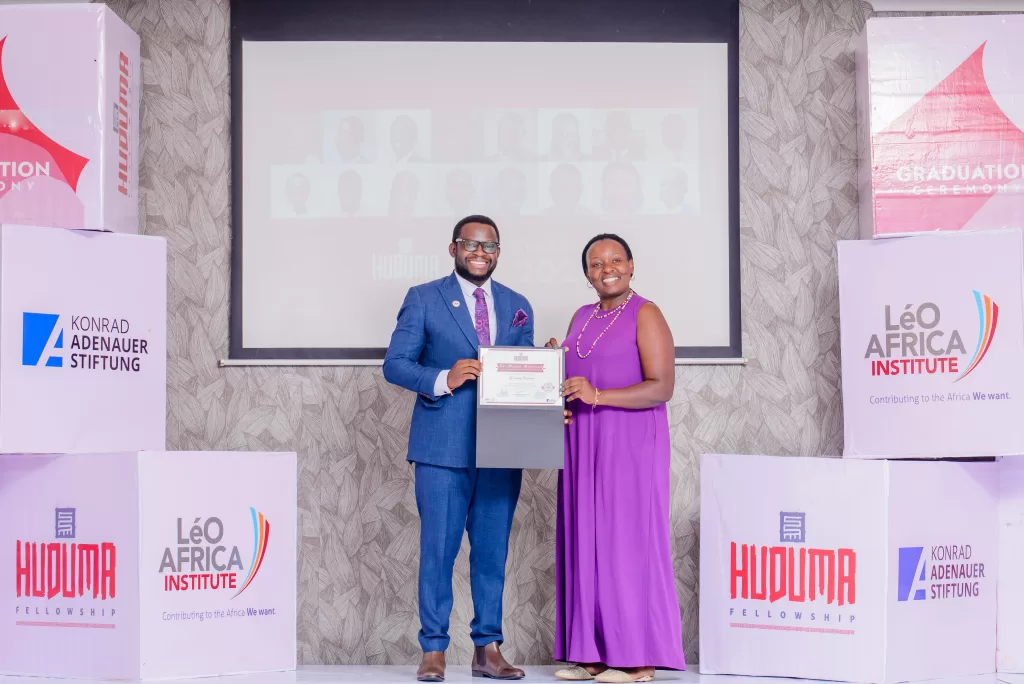
None of this was achieved alone. We stand on the backs of our distinguished faculty who provided an incredible support system throughout the program.
Our graduation is a testament to the growth of the LéO Africa Institute and her invaluable networks. With this graduation, we take on the responsibility to be the young African leaders Africa deserves.
Anna Reismann, the Country Representative of Konrad Adenauer Stiftung often started a discussion with the question: ‘What does it mean?’ Therefore, I pose it to us here, what does it mean to graduate today as a Huduma Fellow?
Well, put simply, it means an opportunity to reflect on our life’s journey and contemplate our contribution to the country. It means to share insights and inspiration with those far wiser than ourselves as we embark on the path to creating a difference in our society.
In his congratulatory email, Awel Uwihanganye, co-founder of the Institute, pointed out that the graduation symbolises faith in the fellowship and solidarity of the African people, thereby bestowing a firm belief in the potential of networks like LéO Africa Institute’s in building a prosperous society.
For many of us, this fellowship has reawakened a lost Pan-African sentiment.
When asked by a YELP Fellow why he’d co-founded the LéO Africa Institute, Magnus Mchunguzi said he wanted to provide an authentic platform for young Africans where they could be prepared to solve African problems.
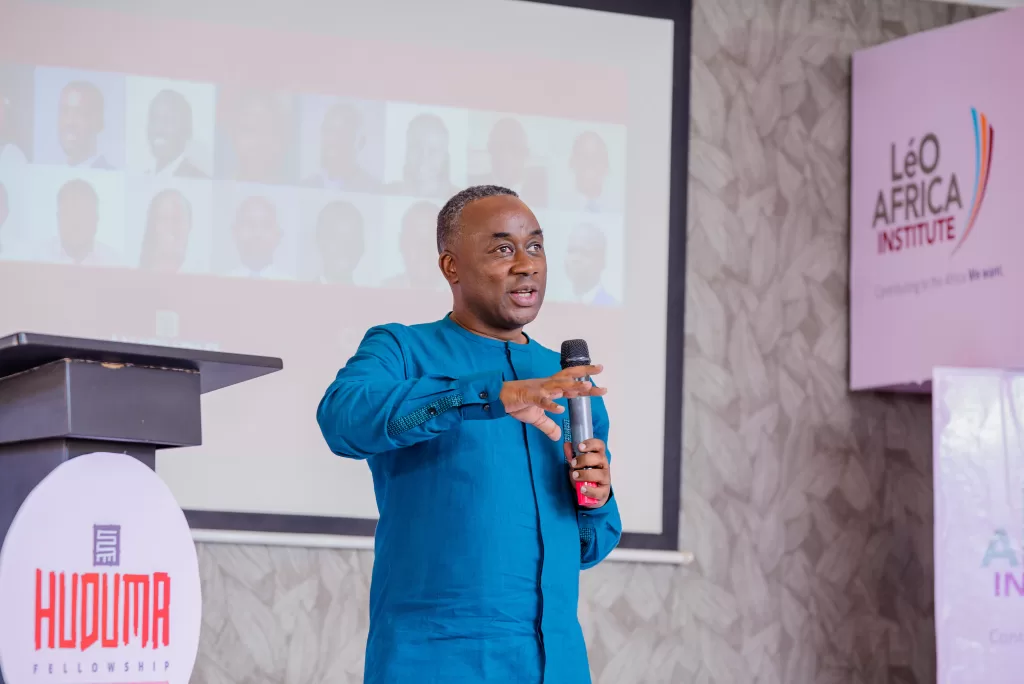
We started the year as a group of sixteen with many dreams and aspirations. Looking back, we can see a year filled with profound learning, the exchange of ideas,the many deep conversations, and the delicate balancing act of work and extensive readings.
Above all, it has been a year of building connections and forging friendships.
Our initial meeting as fellows was expertly led by Emmanuel Kwezi, who emphasized the importance of Chatham House rules, paving the way for our candid and insightful discussions.
We were all eager to get to know one another, a group representing diverse backgrounds and experiences. Our self-introductions, initially quite serious, soon evolved into some of the most amusing moments we’ve shared as fellows.
In that room, we discovered a diverse tapestry of interests and backgrounds. Some among us were enthusiasts of Coldplay, while others were drawn to intellectual conversations.
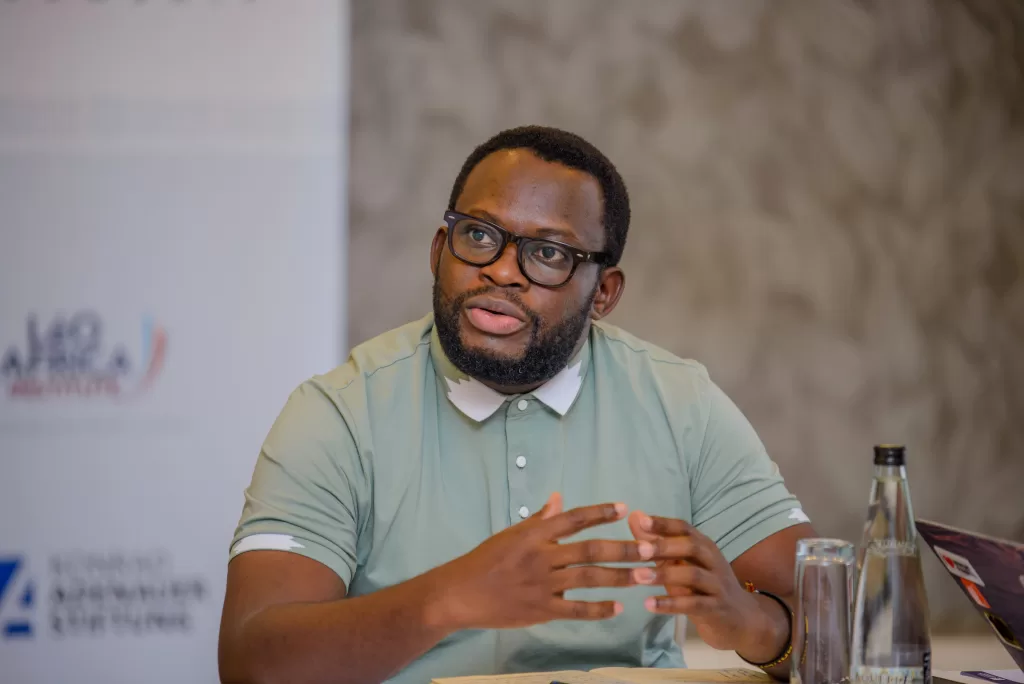
We hailed from various places, from Kings College, Budo to parastatals. Some were technical experts at the Ministry of Health or had insights into the Greater Kampala Metropolitan Area Urban Development Program of the World Bank.
Our introductions revealed a cast of accomplished individuals, including Chief Executive Officers, founders, board members, writers, lawyers, sales professionals, civil servants, and program officers. We even had a Deejay and Risk Officer among us, despite their backgrounds as engineers.
With each additional detail shared during introductions, some of us felt the pressure to ensure we hadn’t omitted something essential.
The highlight of these introductions came when we revealed our employers, sparking laughter and intrigue among our fellows. Organizations like Uganda Revenue Authority, The Office of the Director of Public Prosecutions, National Planning Authority, Microfinance Support Centre, Parliament, and the National Social Security Fund captured the spotlight, and the Cancer Institute and Insurance Regulatory Authority of Uganda garnered particular interest.
However, by the end of our initial engagement, the fellowship had succeeded in stripping us of our prestigious titles, emphasizing the values of servant leadership and purposeful engagement.
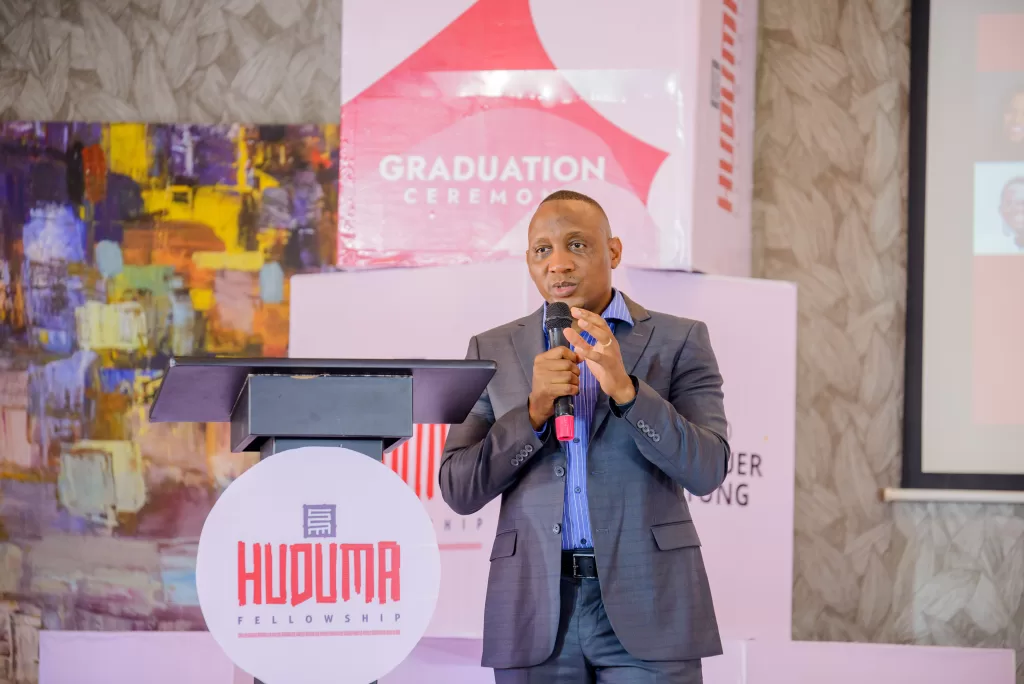
From our very first seminar, this fellowship proved to be a rigorous and meticulously designed program, led by a distinguished and knowledgeable faculty.
It challenged us with its technical demands and high expectations. Looking back, we believe that this rigor was intentional, meant to mold us into stronger, more resilient emerging leaders. As Konrad Adenauer wisely put it, “A thick skin is a gift from God,” and today, our graduation stands as a testament to our new-found strength.
Every one of us concurs that without being part of this prestigious fellowship, we would not have had the privilege of encountering such a wealth of resources and learning from a remarkable group of distinguished facilitators.
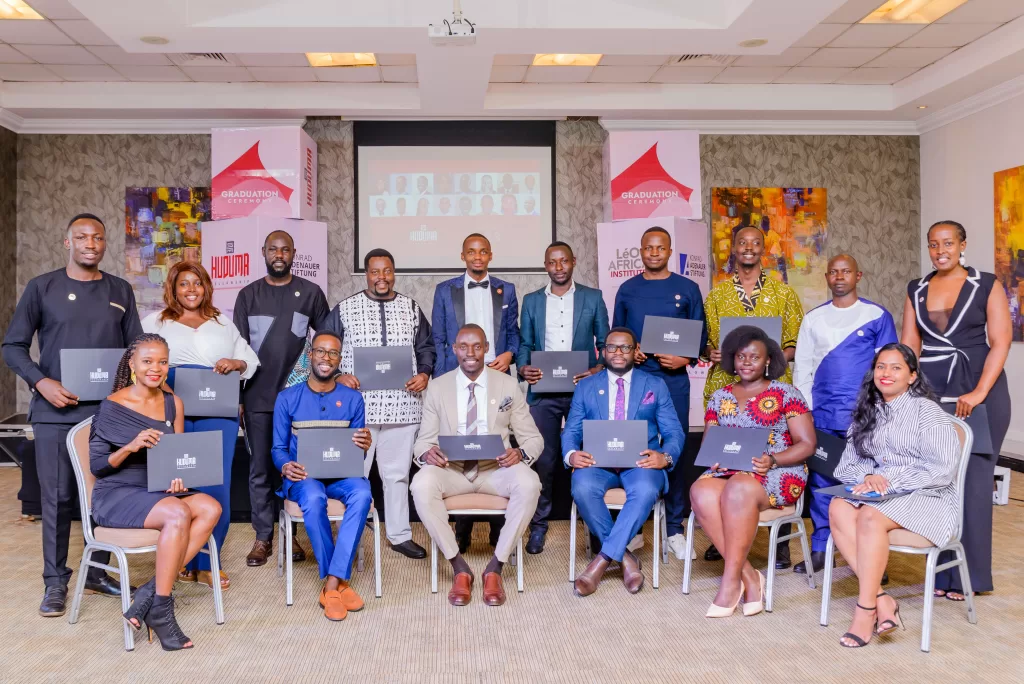
Throughout this journey, we had the unique opportunity to rub shoulders with individuals we often only read about, admire, and follow on social media platforms like X (formerly known as Twitter).
The insights and resources shared during our time together have proven to be both relevant and invaluable. We delved into powerful literature, engaged in thought-provoking discussions, and explored the complexities of African foreign policy and international economic arrangements.
The apex of our fellowship journey was undoubtedly the privilege of attending the heritage seminar in Kanungu, where we had a unique opportunity to go gorilla trekking, forging a deeper connection with our African heritage.
In essence, this fellowship has not only broadened our horizons but has also deepened our understanding of leadership, public service, and the critical role we, as emerging leaders, have in shaping our shared future.
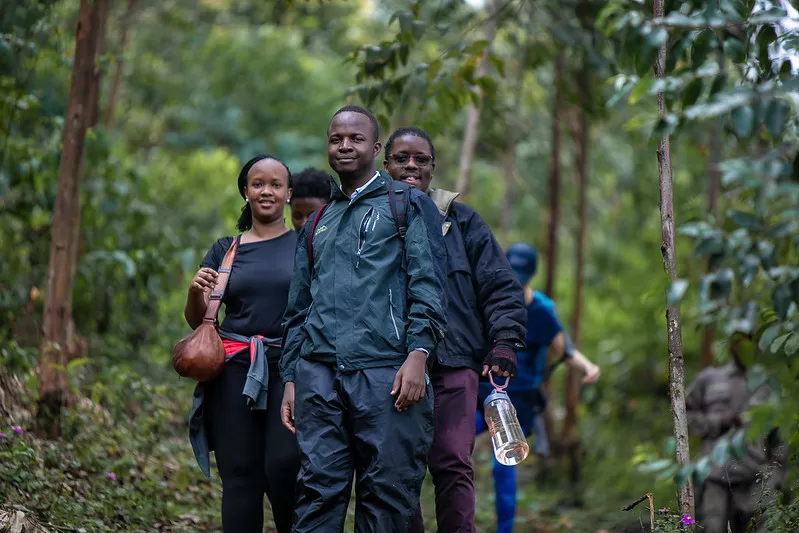
As I crafted this speech, I reached out to the other fifteen fellows, and their unanimous response was a resounding “thank you.” We are deeply grateful for the Institute, our dedicated faculty, and the exceptional facilitators who generously dedicated their time to engage with us.
Your unwavering encouragement has driven us to explore the depths of leadership, often urging us to open up and share our experiences.
Your commitment to the Huduma Class of 2023 reflects your passion for mentoring and working with young people. We thank you for granting us this invaluable opportunity and for uniting such a diverse group of young professionals.
Our gratitude extends to KAS – Konrad Adenauer Stiftung for generously providing resources and steadfastly accompanying us on this journey. You’ve been present and actively engaged since day one, providing us with a space for meaningful discussions. Your partnership with the LéO Africa Institute demonstrates your commitment to empowering young Africans to shape narratives and futures.
The core of your mission, focusing on the dignity of human beings, their rights, and responsibilities, is evident, and we express our sincere thanks to Anna Reismann and her team for their unwavering support.
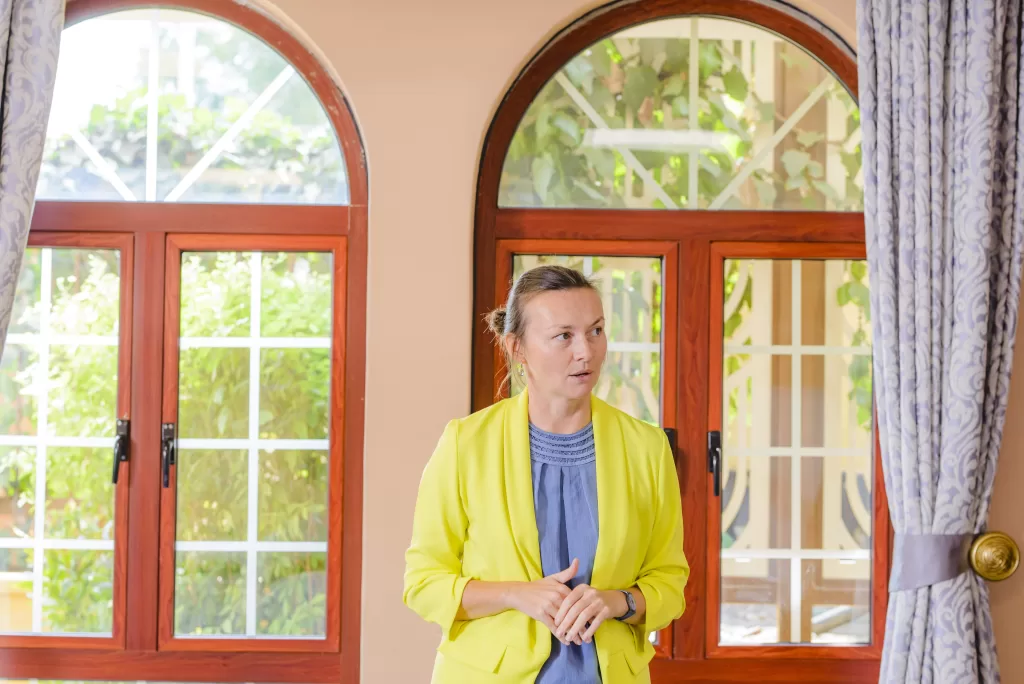
Our graduation as a class symbolizes our determination to pursue our goals and our unwavering belief in our abilities. We must all recognize our roles in fulfilling our social responsibilities, and the fellowship and networks we’ve built should empower us to do so.
It is now our turn to apply the knowledge and skills we’ve acquired during this journey to become exemplary citizens.
As fellows, our success at the institute is measured by our positive impact on the lives of others. As a class, we have decided to leverage our connections and networks to give back to the Ugandan community.
Our collective impact will be most significant through projects that support the most vulnerable in our communities.
Giving back aligns with the values of Huduma, and our inaugural project involves organizing a blood drive to support a blood bank or cancer institute, one of which is where one of our own is a surgeon. This initiative is aimed at saving lives and making a meaningful difference.
As a gesture of our appreciation and a tangible contribution to the institute, we have gifted hard copies of books off the reading list from the Institute’s online resources in the hopes that they shall enrich current and future members of the network.
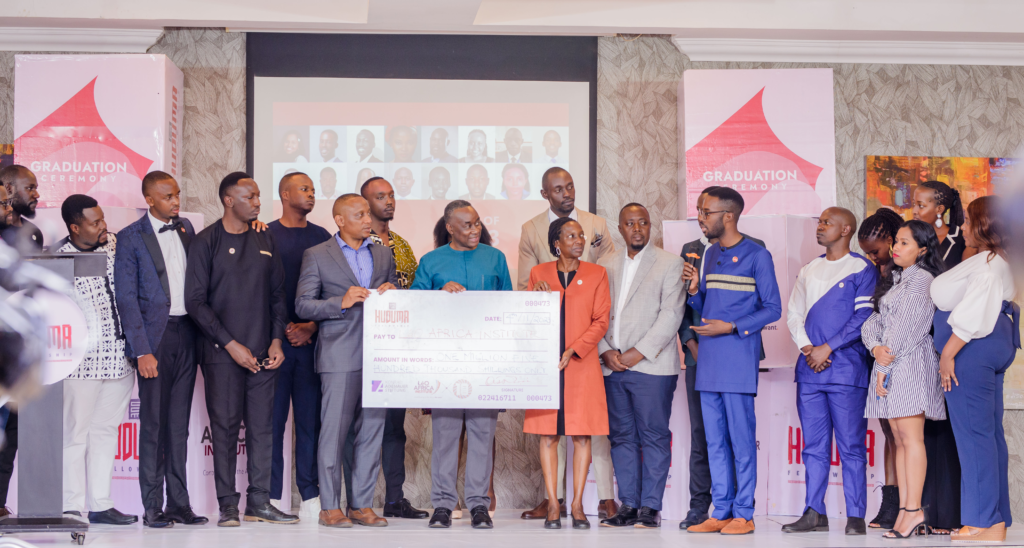
Our collective journey as a class transcends the resources, seminars, and workshops. It’s defined by the strong friendships and networks we’ve forged, the profound conversations we’ve had, and the shared experiences we treasure and have yet to encounter.
To my fellow graduates, today signifies our acceptance of the call to leadership.
As Braque Talley once said, “If you accept the call to leadership, then you must be willing to be misunderstood, criticized, opposed, accused, and even rejected.” Leadership is not straightforward; it requires addressing challenges for which solutions may not yet exist.
Once again, congratulations to the class of sixteen, the esteemed LéO Africa Institute, and the Konrad Adenauer Stiftung

